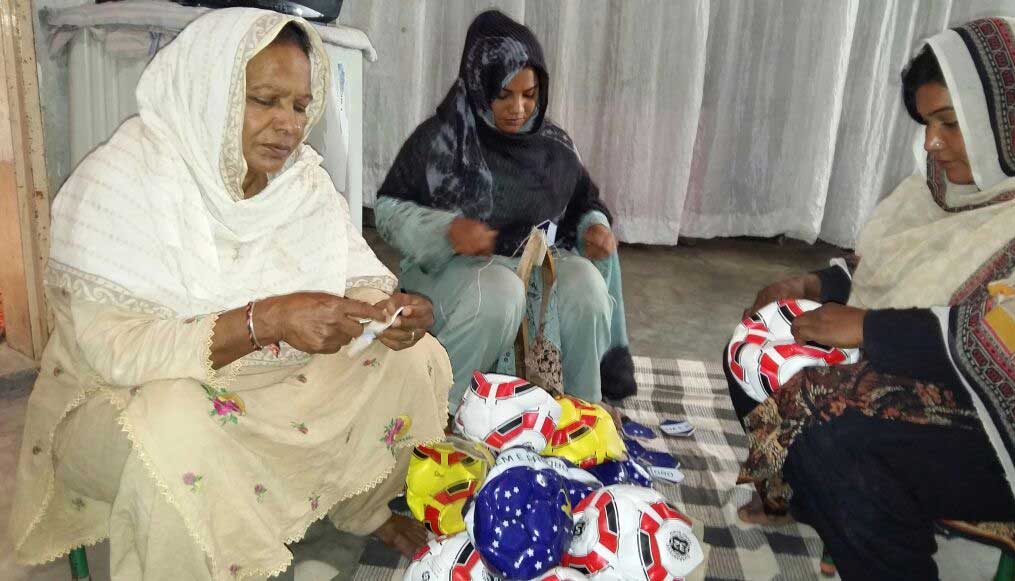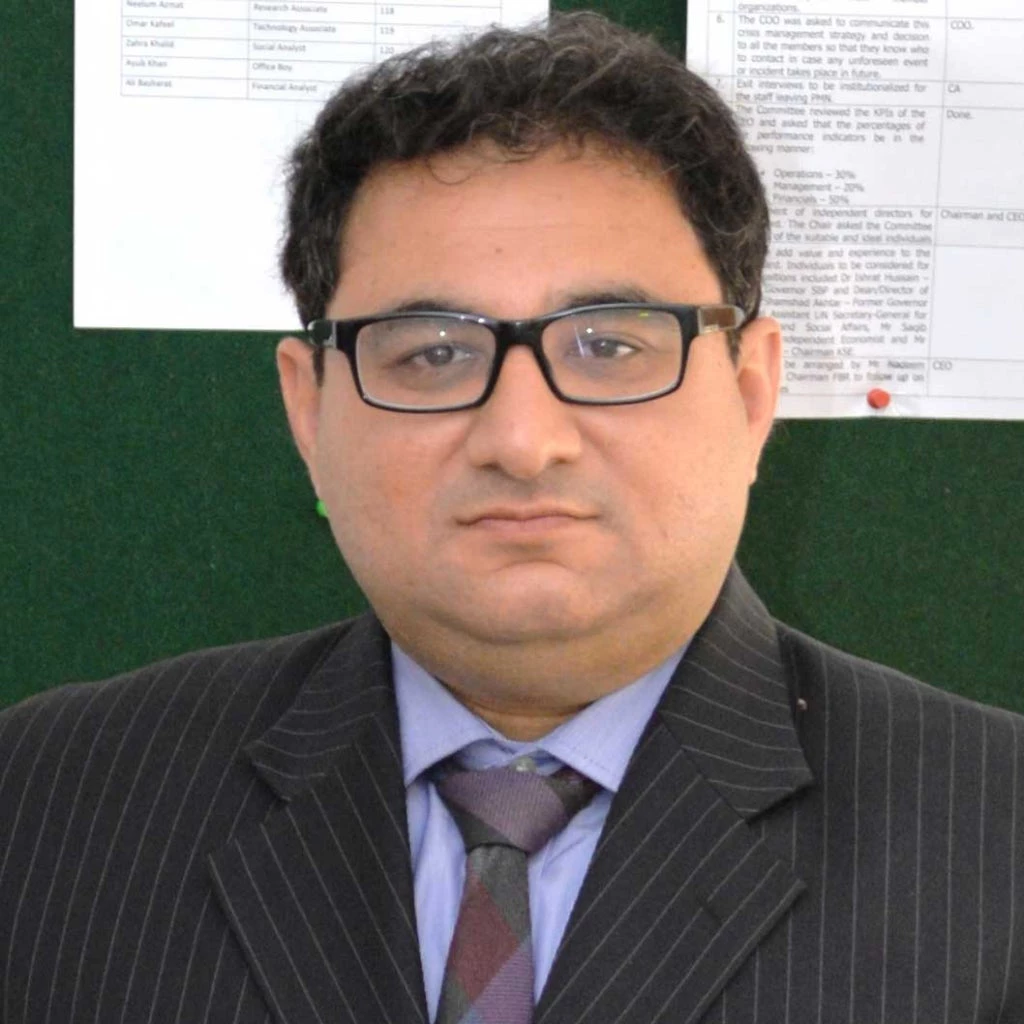Two billion people worldwide still lack access to formal and regulated financial services. In 2015, the Bank Group with private and public sector partners committed to promoting financial inclusion and achieving Universal Financial Access by 2020. We've invited our partners to reflect on why they've joined the UFA2020 initiative and how they're contributing toward this goal. This contribution comes from the Pakistan Microfinance Network. #FinAccess2020
Photo Credit: Muhammad Kaleem, Courtesy of the Farmers Friend Organization (FFO)
Kaneez Fatima is a 50 year-old entrepreneur living in Sheikhupura, a city situated 40 km northwest of Lahore, Pakistan. Years before when her husband passed away, she had no idea to find the means for raising a family of six and her future seemed bleak. In her childhood she had acquired the skill of stitching footballs, and she thought about setting up her own workshop. But as a woman in a male dominated market, in an already challenging entrepreneurial environment, she faced what seemed to be an uphill challenge.
Sadly, Kaneez is not alone. World Bank Group Findex data estimates that Pakistan is home to 100 million unbanked people, or 5.2% of the world’ unbanked population, and the ‘Access to Finance Survey 2015’ commissioned by the State Bank of Pakistan states that only 23% of adults use formal financial services offered by formal financial intermediaries with only 16% of Pakistani adults have an account with a formal financial institution.
But Kaneez, like so many other Pakistani women, had inner strength and determination which got her through. She decided to approach a Microfinance provider for a non-collateralized loan to start a business. She then started to realize the potentially high demand for sport goods. Through perseverance and hard work, she received some large orders from goods manufacturers and then there was no looking back.
Now, Kaneez employs 20 people from local community in her workshop and has ambitious plans to further expand her business. Because she was able to overcome the challenges, her children received a secondary level education and one of her daughters is now assisting her in the business. In addition, her business is providing employment opportunities for others.
In recognition of her efforts, she was awarded the national runner-up award by Citi Foundation and Pakistan Poverty Alleviation Fund. She was also invited to participate in a panel discussion where she shared her success story with H.M. Queen Maxima and World Bank President, Jim Yong Kim, who visited Pakistan in Februrary for Universal Financial Access 2020 launch event hosted by State Bank of Pakistan, the World Bank and its private sector arm IFC.
Along with other challenges for micro-entrepreneurs, limited access to financial services is a fundamental and significant hurdle to start or grow a business. The Pakistan Microfinance Network (PMN) recently undertook a study, which shows that the estimated potential market size for microfinance is 20.5 million in Pakistan alone, yet the current Microfinance outreach is close to 3.7 million active borrowers, showing there is a long way to go for the microfinance providers (banks and non-bank MFIs) in reaching to the large population of financially un-served and under-served segments.
For this purpose, PMN developed a growth strategy providing a framework and identifying key drivers of growth for the industry. The targets set in the strategy are reaching 10 million borrowers (4 million female borrowers), 11 million insurance policy holders, 50 million depositors as well as increasing financial access points to 400,000 by 2020.
Since these objectives are aligned with Universal Financial Access (UFA) 2020 initiative, and Pakistan is one of the World Bank Group’s 25 priority countries, PMN as a national level association of Microfinance providers, decided to join UFA 2020 commitment to build on its efforts of facilitating the process of expanding financial access for all.
At PMN, we believe that building synergies among different stakeholders in the financial inclusion space is the key ingredient to achieving the goal of universal financial access. Our targets are also aligned with Pakistan’s National Financial Inclusion goals, which is working to expand digital finance and branchless banking, especially to address financial access to women.
According to the Global Microscope 2015, Pakistan has one of the best enabling financial inclusion environments in the world. However, despite the sustained efforts towards improving the regulatory environment and institutional capacity building, the level of financial inclusion remains very low. Since the Microfinance providers serves the segment of population living at the base of the pyramid, so the onus of providing financial services including credit, deposits, remittances and insurance to these clients lies with them.
For the Microfinance industry to achieve scale, however, there are a few challenges to be addressed before the growth potential is materialized.
These include:
- Hedging natural and manmade disasters
- Availability of funding
- Ensuring that NBMFIS move into the regulatory framework seamlessly
- Ensuring that Government programs/schemes provide a graduation approach instead of creating overlaps or market distortions
Achieving Universal Financial Access in Pakistan, and unleashing the potential of entrepreneurs like Kaneez through MFIs will require productive partnerships between the people, the government, regulators and the private sector, but will change the lives of millions of people for the better.
Websites:
Pakistan Microfinance Network
World Bank's Financial Inclusion


Join the Conversation